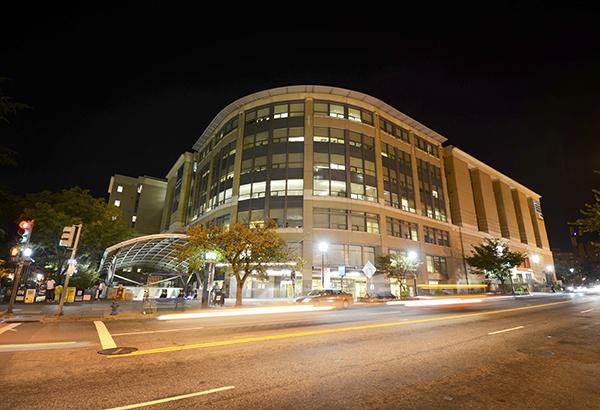The number of forensic medical exams performed in D.C. has increased by about 70 percent since fiscal year 2010.
Nurse examiners in D.C. have performed 421 exams, which are used to gather DNA and other evidence after a sexual assault, since last October, said Heather DeVore, president and CEO of D.C. Forensic Nurse Examiners. That total is the highest in the city in the last six years, an increase she said is likely because survivors are more comfortable requesting the exam as sexual assault has come into focus nationwide.
City officials track the number of tests performed each fiscal year, which ends for the city in October. In fiscal year 2014, nurses performed 402 exams — a 7 percent increase from the previous fiscal year.
“I think more people are reporting,” DeVore said, adding she’s generally noticed about 10 percent increases each year. “I don’t think the number of assaults have changed.”
Forensic medical exams are only available in D.C. at MedStar Washington Hospital Center. Survivors can get free Uber rides to the hospital, about four miles from campus, through a city-funded program. DeVore said the availability of the exams has likely spread through “word of mouth,” noting that the city has not changed its policies regarding the test in the past year.
The exams can last up to several hours and can only be performed by specially trained nurses. While DeVore said the exams are “invasive” to patients, the hospital places a “high priority” on treating the patient well. Trained advocates also meet survivors at the hospital.
Included in the exam is a head-to-toe examination, hair and urine samples and examination of any injuries, according to the Rape, Abuse and Incest National Network.
Seven city agencies make up the city’s sexual assault response team, including the D.C. Office of Victim’s Services and the Metropolitan Police Department.
DeVore said MedStar Georgetown University Hospital is the university representative currently involved in the response team, and officials are working with the Consortium of Universities in the Washington Metropolitan Area to involve more local universities.
“We’re always looking at evaluating that response and looking at the agencies,” DeVore said.
Sophomore Eve Zhurbinskiy, who was elected to a local advisory group earlier in the month, is pushing for the exams to be offered at GW Hospital. Officials have historically not conducted exams there because the programs are expensive and require extensive training for nurses. GW Hospital was not eligible for a federal grant to start a program in 2008 because it is privately owned.

Judy Malmgren, a member of the International Association of Forensic Nurses and a forensic nurse examiner in Santa Barbara, Calif. who is trained to conduct the tests, said the number of exams in her practice has stayed consistent over the years.
But she noted the number of exams performed does not necessarily match up to the number of sexual assaults because many survivors may decide to not receive the exam. Sexual assault is one of the most under-reported crimes nationwide.
She added that increased education about options for survivors may lead to more people requesting the exams.
“Perhaps they feel more comfortable,” Malmgren said. “If you’re hearing other people telling you about it, mostly, you’re going to feel more comfortable.”







